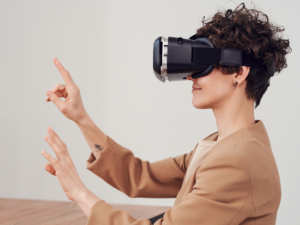Virtual Reality & Hoarding Disorder: A New Kind of Treatment?
Hoarding disorder is characterized by the accumulation of objects and an extreme difficulty getting rid of said objects. Individuals with hoarding disorder may have a strong urge to acquire items, even those that are non-essential, which often leads to very cluttered living environments. There are different kinds of treatments, such as individual counselling and support groups; a pilot study by Stanford Medicine shows there are some benefits to using virtual reality (VR) as well. The study was published in the Journal of Psychiatric Research in October 2023 by Dr. Hannah Raila and colleagues, who theorized that having someone with hoarding disorder enter a simulation of their own home using virtual reality could help them declutter their living space in real life.
The study consisted of nine participants over the age of 55 with a diagnosis of hoarding disorder who attended a 16-week online group therapy program that provided skills and support for their disorder. During the last 8 weeks of the program, they participated in an individualized therapy session with a clinician in a VR space lasting one hour. The VR space was a recreation of their own home based on pictures and videos. Along with the therapy portion, the VR session had the participants place items from their surroundings in a recycling bin, trash, or donation pile. These were then picked up by a virtual garbage truck. In turn, the participants were then tasked with doing the same thing in their home in real life.
The study demonstrated that seven of the nine participants reported having improved hoarding symptoms after completing the group and individualized therapy (with the VR component). Eight out of the nine individuals also had less cluttered homes. Some of the participants, however, said that the VR environment was unrealistic. None of the participants showed a deterioration in symptoms.
This study demonstrates that there is a potential benefit in using VR for hoarding disorder. More studies with larger populations would help explore the full potential of VR therapy, but this study is a stepping stone in the right direction. Exploring new possible therapies will lead to more ways for people to seek help, and this will lead to better lives for people living with hoarding disorder.
– Gabrielle Lesage
Click here for references
Did you know that AMI Quebec has a Hoarding support group every month? It is open to family, friends, and people living with hoarding challenges. Visit amiquebec.org/support for details.
Find help for hoarding: amiquebec.org/hoarding.
Sign up for our emails to stay in touch
Please also follow us on:



